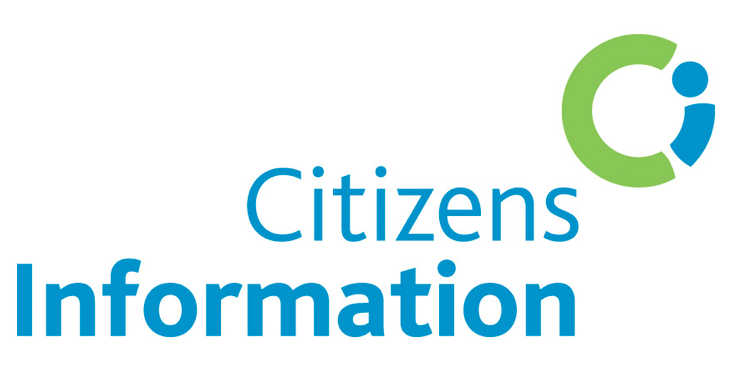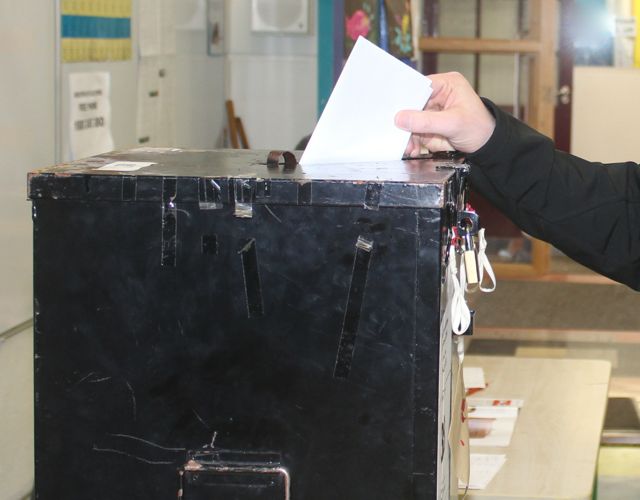
 Know Your Rights has been compiled by Kerry Citizens Information Service which provides a free and confidential service to the public…
Know Your Rights has been compiled by Kerry Citizens Information Service which provides a free and confidential service to the public…
As it is likely that we will have a General Election shortly it is important to check that you are eligible to vote and that you are familiar with the voting procedure.
Who can vote in a General Election?
Irish and British citizens who are resident in the State can vote in an Irish general election. You also need to be over 18 and registered to vote.
How do I register to vote?
Each local authority is legally obliged to maintain, update and publish its Register of Electors. The Register must be maintained and updated on an ongoing basis.
To be eligible for inclusion in the Register of Electors, you must:
• Be at least 18 years old
• Be ordinarily resident at an address in Ireland
• If you are homeless or have no address, you can still register to vote by stating that you have ‘no fixed address.’.
If you have more than one address, you should give the address where you want to be registered. You can only be registered at one address.
You can register to vote:
• Online at checktheregister.ie
• By filling in an application form
• If you do not give a PPS number, you must get your form and ID witnessed at a local Garda station.
Continued below…

Is there a deadline for registering to vote?
Your application must be received by the local authority at least 15 days before an election or referendum (excluding Sundays, Good Friday and public holidays). If it is received on or after 14 days before an election or referendum is taking place, you will not be registered to vote in that election or referendum.
You can add your details to the ‘pending elector list’ if you are 16 or 17 and you are ordinarily resident in Ireland.
Can I update my details on the Register?
You can now update your details at any time during the year. The easiest way to do this is on checktheregister.ie.
You must change your details at least 15 days before polling day. Sundays, public holidays and Good Friday are not counted as days for this purpose.
If you are already registered, you should check your details and add your PPS number, date of birth and your Eircode on checktheregister.ie.
This will allow the local authority to check your details are correct. Your PPS number and date of birth will not be published on the electoral register.
Continued below…

Who is eligible to register for a Postal vote?
Most voters have to vote in person at an official voting centre. However, you may be eligible for a postal vote if you are:
• An Irish diplomat posted abroad, or their spouse or civil partner who is living abroad with them
• A whole-time member of the Defence Forces
You may also be eligible for a postal vote if you cannot go to a polling station because:
• You have an illness or disability
• You are studying full time at an educational institution in Ireland, which is away from the home address where you are registered
• You cannot vote at your local polling station because of your occupation, service or employment
• You are unable to vote at your polling station because you are in prison as a result of an order of a court
• You are a member of the Garda Síochána
• You are registered as an anonymous elector, or you are part of the household of an anonymous elector
People who are eligible to vote by post are registered on the Postal Voters list. The latest date for receipt of applications is:
• 2 days after the date of dissolution of the Dáil in the case of a general election
• 2 days after the date of the order appointing polling day in the case of a Dáil bye-election
• 22 days (excluding Sundays and public holidays) before polling day for other elections or referendums
You can download the application form to register for a postal vote from checktheregister.ie
You can also get it from your local authority or Citizens Information Centre
How do I know where to vote?
Your polling station (where you go to cast your vote) is on your polling card, which you should receive by post in advance of election day. If you do not get a polling card, you can find your polling station on your local authority website.
Do I need a polling card to vote?
It is not necessary; however, you do need to bring identification.
You should bring identification with you even if you have a polling card. You can use the following documents to prove your identity:
• A passport (either a passport card or passport book)
• A driving licence
• A workplace identity card (it must have a photograph)
• A student identity card (it must have a photograph)
• A travel document (it must have a photograph)
• A Public Services Card
• A bank or credit union account book with your name and address in the constituency
If you do not have any of the documents listed above, you can use one of the following, along with evidence of your address in the constituency:
• A cheque book or card
• A credit card
• A birth or marriage certificate
If you are asked to prove your identity and you cannot do so, you may not be allowed to vote.
What happens at the polling station?
When you arrive at the polling station, you will be asked to state your name and address and should have your identification ready for inspection.
If the presiding officer is satisfied with your identity, and your name is on the Register of Electors, the presiding officer will stamp a ballot paper and give it to you.
You will then go into a voting compartment. The names of the candidates in the election appear in alphabetical order on the ballot paper along with an indication of their political party, if any.
A photograph of the candidate and/or a party emblem may also appear on the ballot paper.
It is a secret ballot, which means that if you take selfies or post pictures online that reveal who you, or someone else, voted for, you could be prosecuted.
Each candidate at a general election may be represented by a personation agent at the polling station. This person supervises the polling and helps prevent electoral offences.
However, on polling day, campaigning is forbidden, and posters must not be displayed within 50 metres of a polling station.
How do I cast my vote?
You must indicate the order of your choice of candidates by writing “1” or “one” in the box beside the photograph of your first choice of candidate and, if you wish, “2” or “two” beside the photograph of your second choice of candidate, “3” or “three” beside the photograph of your third choice and so on.
This allows for your vote to be transferred from your first choice to your second choice if your number one candidate has been eliminated or already elected.
If you want to vote for one candidate only, you should mark the number “1” or the word “one” in the box next to the candidate’s name. You should not tick or mark the box with an X.
Pencils will be provided at polling stations, but you can bring your own pen or pencil if you wish.
Once you have made your choice or choices, simply fold up the ballot paper and post it into the ballot box.
If you make a mistake on your ballot paper, the returning officer may give you another ballot paper. This is at the discretion of the returning officer.
If you have already posted your ballot in the ballot box, the returning officer cannot give you another ballot paper.
What are spoiled votes?
Ballot papers that cannot be counted are called spoiled votes. A ballot paper may be spoiled if:
• The ballot paper was left blank
• The voter ticked or otherwise marked their preferred candidate or candidates, rather than numbering them
• The writing on the ballot paper could not be understood
• The ballot paper did not have the number “1” or the word “one” next to any candidate
• The ballot paper was not stamped by the returning officer
• The voter wrote their name or identified themselves in some way
• The order of preference was not clear (for example, the voter wrote “3” next to 2 different candidates)
• The voter deliberately spoiled their paper as a protest
Are there any special arrangements for Voters with disabilities?
There are several arrangements in place to enable people with disabilities to exercise their voting rights.
You can:
• Vote at an alternative polling station if the local station is inaccessible
• Be helped to vote at the polling station by a companion or the presiding officer
• Vote using a ballot paper template if you have a visual impairment
• Vote by post
• Vote at a hospital, nursing home or similar institution if you live there
• At least one of these facilities is available to you if you have a physical illness or disability, a visual impairment, or a reading or writing disability.
• Deirdre Vann Bourke, Kerry Citizens Information Manager, said: For anyone needing information, advice or have an advocacy issue, you can call a member of the local Citizens Information team in Kerry on 0818 07 7860, they will be happy to assist and make an appointment if necessary. The offices are staffed from Monday to Friday from 10am to 4pm. Alternatively you can email on tralee@citinfo.ie or log on to www.citizensinformation.ie for further information.

